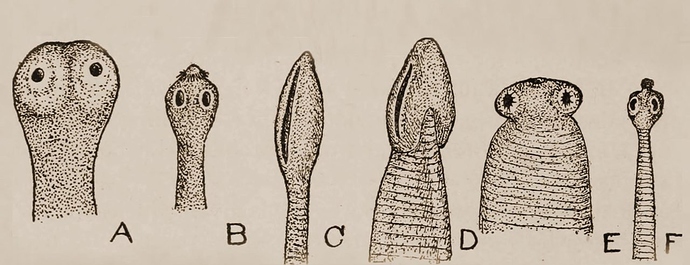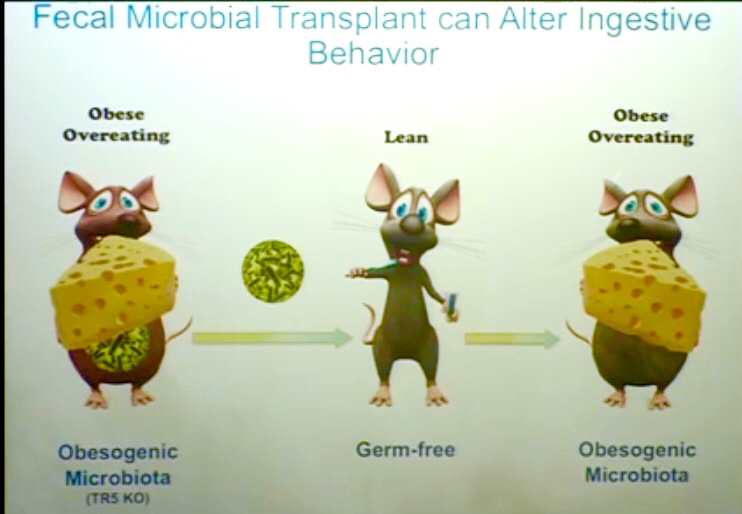Hey all!
I’m new here to the forums, but was hoping for some assistance or guidance from this incredible community. I’m a physician assistant practicing in primary care in the US. The medical director at my clinic is a staunch believer in the lipid hypothesis and low fat diet. Over the past eight months, I have guided a number of patients through ketogenic and LCHF diets with incredible outcomes. I’ve been able to help patients come off of diabetic medications, blood pressure medications, cholesterol medications, and lose A LOT of weight. Despite these successes, I was recently told by the medical director that I can not be promoting ketogenic or LCHF diets, nor can I even offer to assist a patient in doing so (even if it is was entirely their decision). Needless to say, I find this appalling and not at all in the best interest of our patients. Does anyone here have any advice for handling the situation? Specifically, any clinical folks that have gone through something similar? I know there is a “Show Me The Science” forum, but does anyone know, offhand, some great references in the literature that illustrate long term efficacy and safety of LCHF and ketosis? I’ve been compiling a list of my own, but would like to add as much supportive research as I can to it (Since I’m sure there will inevitably be a showdown). Thanks for any help you guys can offer!
Forbidden from treating patients with Keto?!
Hate to say it, but maybe it’s time to look for a different place to hang your hat. As the assistant, I’m not sure you have the authority to go above/around the physician(s) you’re working with.
Sorry I can’t help you.
I have been wondering how to find a dr that is encouraging of Keto. Everything I read says “consult with your physician” but based on other experiences with my primary dr, I think he would be very traditional and I don’t really want to have him put a guilt trip on me.
Just a shot in the dark but has anyone ever thought of approaching this from a gut flora biome frame work rather than from an exclusive LCHF perspective because if you really look at the DATA that’s what’s really happening with this!
That’s a great thought. The medical director is actually a big proponent of gut microbiome (and we’ve discussed it a number of times), but he thinks of it solely from a perspective of fiber and plant based nutrition. At first he was saying “keto is high fat and all of the data shows that is going raise cholesterol and increase CV mortality.” Now that he is seeing more of HIS patients doing it on their own (since it’s gaining popularity) and their labs are improving, he’s switching gears to the fear mongering “we have no data to show what harm this can do 10-20 years from now.”
We have data to show that with obesity and progressing on the diabetes/increasing insulin cycle, many of the patients will be dead in 10-20 years. I don’t see how LCHF could be worse.
I couldn’t agree more! Efficacy data on LCHF aside, my thought has always been "we’ve pushed low fat for half a century, clearly it hasn’t worked (certainly not for everyone). Why not look into other possible causes and solutions?
LCHF only being part of a much broader sepectrum that encompasses the overall picture like e.g. bad biome; no fat soluble vitamin K or fat in diet to absorb K===> excessive sugar blocking absorption = arterial and organ calcification ==> heart attack, stroke etc.
Have you viewed Ivor Cummins’ presentation at ketofest 2017?
It’s above and beyond the science
I’ll definitely have to check that out. I’ve listened to a number of his interviews but haven’t seen that presentation.
Taking patients with me is a little easier said than done due to the unique nature of my practice setting. 
Keto has been around and studied since the 1920’s as treatment for epilepsy. Surely there is already long term effects studied.
I work in a state with critical state guidelines that I follow for laboratory medicine.
- I make sure I know my state laws super well
- I follow the guidelines of my board of registry for lab medicine
- I follow best practices for all of my regulatory bodies for where I work.
- I use critical thinking and only use solid based referenced work
Also, I like to read about others in related fields who work in my state.
https://www.dietdoctor.com/low-carb/for-dietitians
Best wishes and know the rules for your state and specialty. Make sure your malpractice insurance is up to date or your employer will cover you. For sure.
Here’s a suggestion. First of all, stop referring to it using the misnomer “Keto” or “Ketogenic”. That’s a major part of the problem regarding medical acceptance. The true biochemical concept is the process of lipolysis, or a lipolitic WOE. Just like it was lipogenesis, or a chronically lipogenic WOE that has caused all these problems for people.
Address the whole topic as a process of hormonal imbalance, as a lipogenic WOE has caused massive, detrimental, hormonal resistance states that cause the health issues, namely Leptin and Insulin. Stress that in order to reverse these conditions, a WOE that enables the secretion of the antagonistically paired hormones is necessary, namely Ghrelin and Glucagon. This, of course, requires eating lipolytically. (keto)
Stress that eating lipolytically is a tool, and can certainly be used therapeutically on a short term, until the imbalance is eliminated and hormonal homeostasis is achieved. At the same time emphasize that these detrimental health conditions will be alleviated while this is happening.
In regard to prevention of reoccurence, point out that these detrimental cconditions were caused by chronic overcompensation of glycogen, which is easily avoided by following a lower Carb lifestyle, as well as an understanding that if a person overeats carbs they should cut back on them afterwards so that glycogen stores aren’t filled up to the point chronic overcompensation occurs.
I’ve been doing this for nearly two decades and have never regained an ounce of fat.
This is just the tip of the ice berg rant, part of the problem is this common citation by clinicians, physicians and scientists is this “lack of research” quotation and and then in furtherance implicating and then associating LCHF with other problems so LCHF can absorb the blame and then you have people who are desperate to fix their autoimmune dysregulation etc…
Then you have overwhelmed and burned out physicians who are so worried about liability and peer-related efficacy (board of medical examiners) when their is research DATA for any well trained legal professional to counter argue any fine pionts of research DATA which is quite extensive and long-term that far outpaces any contemporary standards (big-pharma and risk factors) for a vast array of interrelated research DATA cascading and spanning well-over a hundred years.
Then you have the pharmaceutical companies and FDA or equivalent in other countries and nations with their band-aid approach to health care which basically gives physicians a license to kill (to support the consumption and dietary intake of execessive sugars including carbs to support Big-Agra) with short-term research to keep the fiscal pockets of pharmaceutical and agricultural industries fat, happy and conscience free?
If it were possible for another person to experience the health benefits, mental claririty and sense of well-being of my particular gut flora biome, I would say you would be truly shocked and stunned to your ever-living core at what is possible! The gastrointestinal system (neural oscillation network) being a second brain in and of itself!
I have so much more to say about this but will end it for now…
Some inter-related references on the genesis of biome et al:
Hey Anniegirl, go onto youtube and do a search for Dr. ken Berry he maybe able to help you. Also do not let any doctor or any other person for that matter put a guilt trip on you because you want to better your health! If your current Dr. is not willing to expand his mind to learn you need to find a new doctor! Tradition has put many people 6 feet under it never worked!
There was a study asking doctors would they prescribe the same diet to a family member as they do to patients. Can you guess the answer. As Dr. ken Berry says they don’t have any data either that shows success! We have to get people to use their own personal lab (their body) and run the experiment. You can always go back to what you were doing.
Being a little facetious here.
Tell them they’re right and you’ve decided to switch to recommending a vegetarian diet with healthy fruit oils. Coconut, olive, and avacado. But since the patients are or maybe diabetic you’re removing any food with added sugars or any high sugar fruit. “Super food” berries in limited quantity are probably alright.
Since it’s complicated for vegetarians to get complete proteins and B12. And since this is for health and not ethical reasons. For simplification you’re recommending limited but targeted animal protein. Also beef for iron. Fish for omega 3s. Seafood for iodine. Etc…
Since butter and other dairy fat has shown to be heart healthy and a good source of fat soluble vitamins. Especially K2 which can be found in grass fed cows. Grass fed butter has to be added as a recommendation. Also recommended but limited low sugar yoghurt for gut health. Skim (high sugar) milk might need to be limited because of lactose allergies.
Cod liver oil can probably be thrown in there too for similar arguments for vitamins and EPA and DHA.
Additional micronutrients and protein can be obtained from a limited selection of nuts. (Maybe not peanuts. They’re legumes and too many people have allergies.)
Also since there’s a growing concern about gluten allergies anything with processed flour should be temporally eliminated for 30 to 90 days.
A similar 30 abstinence for potatoes because of possible nightshade allergies.
Sarah Hallberg’s list of low carb research
https://blog.virtahealth.com/low-carb-research-comprehensive-list/
Good Luck



